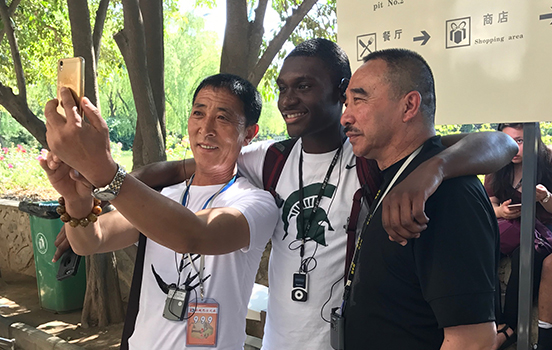 Navigating within a community whose racial and ethnic background is different from your typical lived experience can be a great learning opportunity. It may also be liberating to be part of the majority population for the first time in your life. Living abroad can present unique opportunities to examine discrimination in different contexts.
Navigating within a community whose racial and ethnic background is different from your typical lived experience can be a great learning opportunity. It may also be liberating to be part of the majority population for the first time in your life. Living abroad can present unique opportunities to examine discrimination in different contexts.
As a student traveling abroad, potential racial bias and prejudice can be concerning without your usual support system. Methods of overcoming discrimination abroad can be similar to the methods you use at home. Finding new support groups and adjusting to a new comfort zone are important to having a fulfilling education abroad experience.
Many students of color who study abroad have expressed surprise when they are first identified by their nationality (e.g. U.S. American) rather than their ethnicity.
Choosing a Destination
When you consider potential destinations, take into consideration all facets of a culture, including possible racism and discrimination you may face. Research the political, cultural and historical context of the country where you'll be studying.
Browse through the Student Stories section of our webpage to read about the experiences of previous Spartans abroad.
Research countries on the BeGlobalii Articles & Resources webpage or the U.S. State Department’s Country Information pages where there are dedication sections that talk about the diversity and the inclusiveness of each country.
You can also reach out to offices on campus such as the Office of Multicultural Enrichment and Advocacy or Institutional Diversity and Inclusion who can provide advice.
Adjusting to Differences
Cross-cultural differences are an integral part of the education abroad experience. There are several ways to successfully navigate within a different culture's social standards.
Asian or Asian American
Black or African American
Hispanic or Latinx
Native American